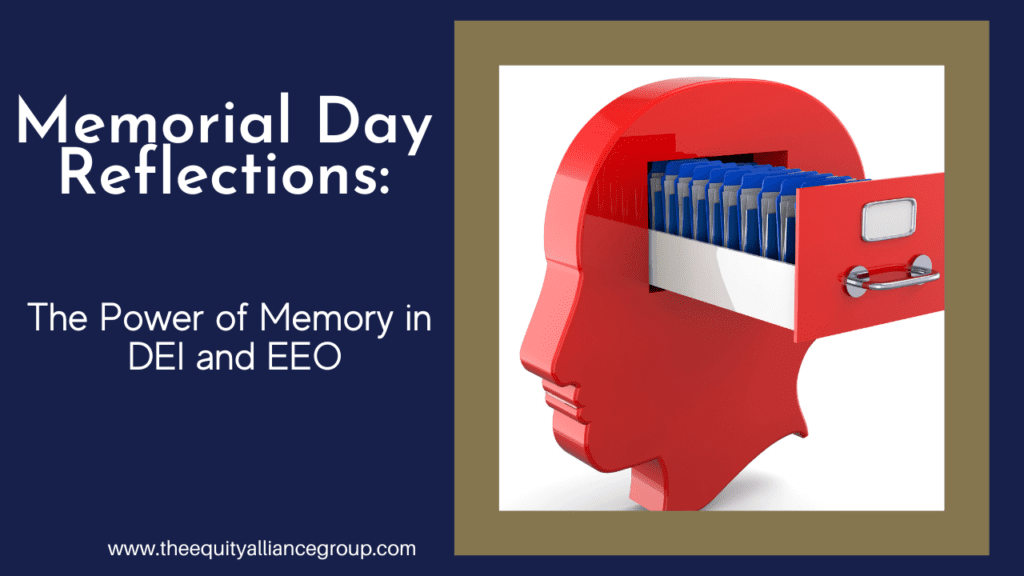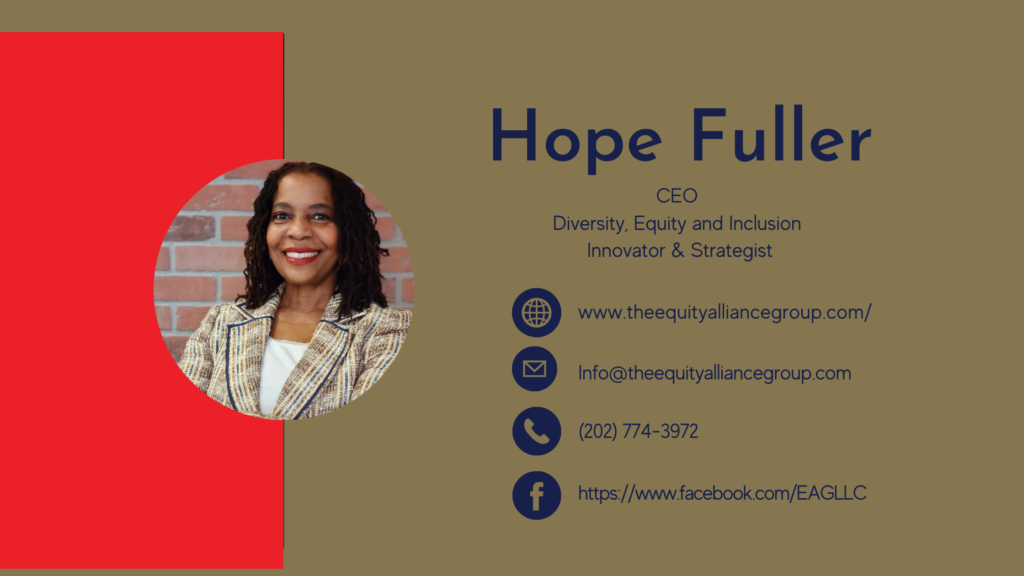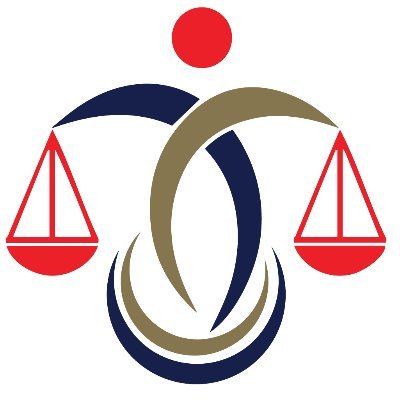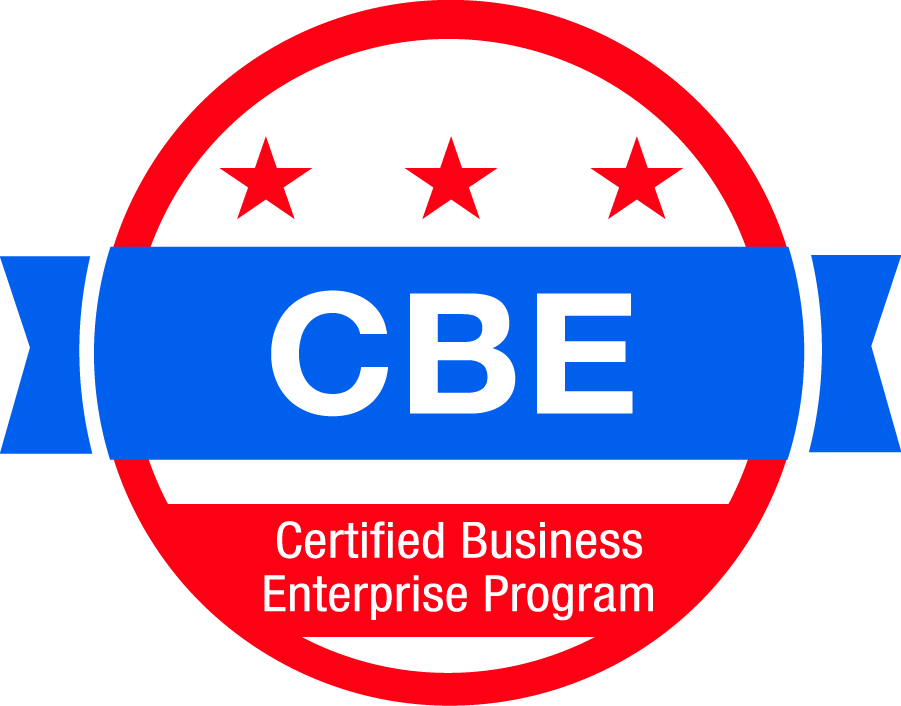
Human memory profoundly impacts many areas of our lives, shaping how we perceive and interact with the world around us. Not only does it influence our personal lives, but also our professional lives, playing a crucial role in workplace Diversity, Equity, Inclusion (DEI), and Equal Employment Opportunity (EEO) efforts. It also shapes how we remember and honor those who have served and sacrificed in our nation’s armed forces, especially on Memorial Day.
The Power of Memory
Memory is an intricate process of acquiring, storing, and retrieving information. It influences our perceptions, decisions, and behaviors and forms the foundation of our personal and collective narratives. This power of memory becomes particularly evident in three key areas – unconscious bias, systemic discrimination, and workplace culture – and each has significant implications for DEI and EEO.
Memory and Unconscious Bias
Unconscious biases are subtle, often unperceived prejudices that stem from institutions of socialization, personal experiences and learned stereotypes stored in our memory. They can affect our perception of others and decision-making, often leading to discriminatory behavior. Recognizing and confronting these biases can foster a more equitable and inclusive environment.
Similarly, Memorial Day can be a powerful reminder of the need to confront our biases. We should remember all servicemen and women equally, regardless of race, gender, ethnicity, religion, or sexual orientation. This day of remembrance can promote a more inclusive understanding of service and sacrifice.
Memory and Systemic Discrimination
Systemic discrimination is deeply ingrained in societal structures, perpetuated through policies, practices, and attitudes that have been passed down through generations. Collective memory can contribute to systemic discrimination, but it can also help us challenge the narratives that uphold inequality.
During this Memorial Day, we must consider how systemic discrimination may have impacted the recognition of contributions by different groups. By broadening our collective memory and understanding of history, we can ensure that all who served, including marginalized and often overlooked groups, are acknowledged and honored.
Memory and Workplace Culture
Organizational memory shapes the workplace culture, influencing DEI and EEO. A positive organizational memory that highlights diversity, inclusion, and equality can promote a culture that values diverse perspectives.
Each year during Memorial Day, many organizations take the opportunity to honor the service of veterans in their workforce by presenting recognition programs, which can contribute positively to organizational memory and further DEI and EEO goals.
Shaping Memory for a Better Society
Just as we work to shape memory in the workplace to better DEI and EEO outcomes, so should we strive to shape our collective memory of Memorial Day. It is a time for reflection, appreciation, and acknowledgment of the ultimate sacrifice made by countless service members.
We can strive to create a more inclusive narrative of Memorial Day that recognizes and respects the diversity of those who have served. By doing so, we reaffirm our commitment to diversity, equity, and inclusion principles.
As we commemorate Memorial Day, let’s not forget the power of memory and its role in shaping our society, workplace, and how we honor those who have served. By understanding and utilizing the power of memory, we can make strides toward creating a more inclusive and equitable society and workplace.
#Memory
#VeteransMatter
#Inclusion
#Belonging
#DEI
#TheEquityAllianceGroup








Comments are closed